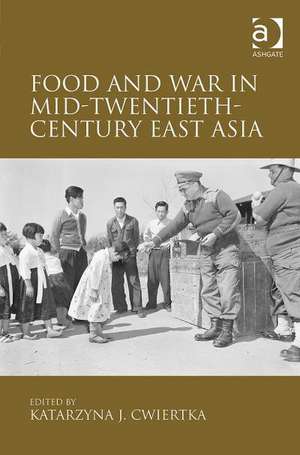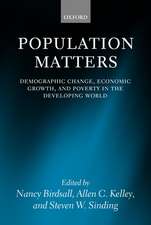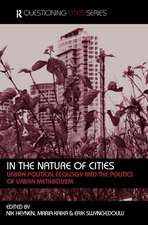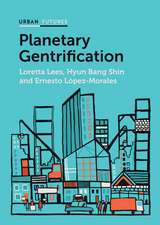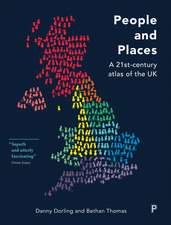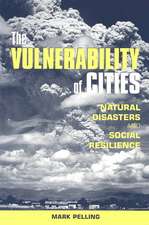Food and War in Mid-Twentieth-Century East Asia
Editat de Katarzyna J. Cwiertkaen Limba Engleză Hardback – 20 feb 2013
Preț: 1110.14 lei
Preț vechi: 1353.84 lei
-18% Nou
Puncte Express: 1665
Preț estimativ în valută:
212.43€ • 227.16$ • 177.12£
212.43€ • 227.16$ • 177.12£
Carte tipărită la comandă
Livrare economică 17 aprilie-01 mai
Preluare comenzi: 021 569.72.76
Specificații
ISBN-13: 9781409446750
ISBN-10: 1409446751
Pagini: 210
Ilustrații: Includes 5 b&w illustrations and 1 map
Dimensiuni: 156 x 234 x 14 mm
Greutate: 0.48 kg
Ediția:New ed.
Editura: Taylor & Francis
Colecția Routledge
Locul publicării:Oxford, United Kingdom
ISBN-10: 1409446751
Pagini: 210
Ilustrații: Includes 5 b&w illustrations and 1 map
Dimensiuni: 156 x 234 x 14 mm
Greutate: 0.48 kg
Ediția:New ed.
Editura: Taylor & Francis
Colecția Routledge
Locul publicării:Oxford, United Kingdom
Cuprins
Contents: Introduction, Katarzyna J. Cwiertka; Part I Supplying Nutrition: From riots to relief: rice, local government and charities in occupied Central China, Toby Lincoln; Food rationing and the black market in wartime Korea, Kyoung-Hee Park; A dearth of animal protein: reforming nutrition in occupied Japan (1945-1952), Christopher Aldous; From feeding the army to nourishing the people: the impact of wartime mobilization and institutions on grain supply in post-1949 Su’nan and Taiwan, Julia C. Strauss; Feeding the UN troops in the Korean War (1950-1953), Katarzyna J. Cwiertka. Part II The Complexity of Eating: An insatiable parasite: eating and drinking in WWII armies of the Asia-Pacific theatre (1937-1945), Aaron William Moore; The ’food problem’ of evacuated children in wartime Japan, 1944-1945, Samuel Hideo Yamashita; A ’great East Asian meal’ in post-colonial Seoul, Autumn 1945, Lori Watt; Learning about radioactive contamination of food: lessons from Hiroshima and US nuclear testing in the Marshall Islands, Nancy J. Pollock; Index.
Recenzii
'How eating happens on and off the battlefield and amid wartime and post-war food storages is the focus of this compelling collection of essays, which also addresses the implications of wartime food practices for the outcome of wars, as well as post-war state building, culture, and society.' Reviews in History
Notă biografică
Katarzyna J. Cwiertka is Chair and Professor of Modern Japan Studies at Leiden University, the Netherlands.
Descriere
War has been both an agent of destruction and a catalyst for innovation. These two, at first sight contradictory, yet mutually constitutive outcomes of war-waging are particularly pronounced in twentieth-century Asia. The disarray of war may halt economic activities and render many aspects of life insignificant but the need for food cannot be ignored and the social action that it requires continues in all circumstances. This book documents the effects of war on the lives of ordinary people through the investigation of a variety of connections that developed between war-waging and the production, distribution, preparation and consumption of food throughout Asia since the 1930s.
